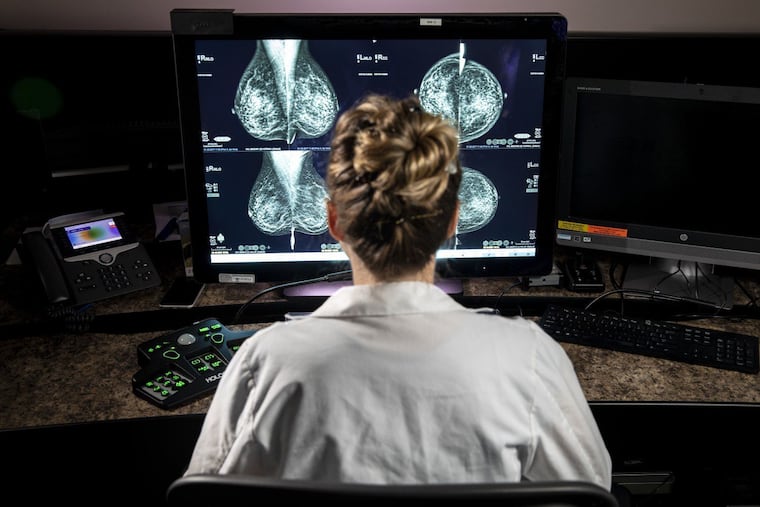Does the COVID-19 vaccine interfere with mammograms? | Expert Opinion
When some women reported swelling in underarm lymph nodes after getting a COVID-19 vaccination, questions were raised about mammogram screening. Here’s what you need to know.

In 2022, the American Cancer Society estimates that 339,250 American women will be diagnosed with breast cancer and about 43,250 will die from the disease. About one in eight women (13%) will be diagnosed with breast cancer in her lifetime. Mammograms are important tools for early detection and are credited with saving many lives.
But when some women reported swelling in underarm lymph nodes after getting a COVID-19 vaccination, questions were raised about whether this might interfere with mammogram screening.
Here’s what you need to know:
What are lymph nodes?
Lymph nodes are small, bean-shaped structures that filter substances that travel through our lymphatic fluid and help the body fight off infection. Lymph nodes are most commonly found in the neck, underarm, chest, abdomen, and groin.
When do lymph nodes swell?
You may recall your physician feeling for swollen lymph nodes in your neck when you have a sore throat or cold. Lymph nodes can also become swollen due to cancer, such as lymphoma or metastatic disease from another location in the body, such as breast cancer. Other possibilities include autoimmune disorders and allergic reactions.
In most cases, swollen lymph nodes are harmless and will return to normal in a few days to weeks.
What do lymph nodes have to do with the COVID-19 vaccine?
After widespread COVID-19 vaccine administration in the winter and spring of 2021, many patients were being identified with swollen lymph nodes under the arm in which they received their vaccination. Having swollen lymph nodes in the underarm region after vaccine administration has been reported before, particularly with influenza and human papilloma virus (HPV) vaccinations. However, higher rates of swollen lymph nodes were found after COVID-19 vaccinations, leading to confusion for both patients and physicians about the clinical significance of the finding and how to determine the best course of action.
What was the initial response to the swollen lymph node-COVID-19 vaccine connection?
Many breast imaging centers and medical societies suggested delaying routine screening mammograms until four to six weeks after the second dose of COVID-19 vaccination. Other centers, including Mercy Fitzgerald Hospital, did not recommend delaying screening and instead focused on a thorough patient questionnaire to discuss vaccination status, timing, and the side of vaccine administration.
In both scenarios, women with swollen lymph nodes detected on screening mammograms were instructed to return for an ultrasound of the underarm in question four to 12 weeks later to document a return to normal.
What is the latest guidance?
A recently published study in the medical journal Radiology concluded that patients should not delay getting a mammogram because of a recent COVID-19 vaccination. In addition, the study concluded that follow-up imaging for patients with swollen lymph nodes is not recommended unless there are other suspicious findings.
In the study, 537 of the 1,217 people (44%) who received the COVID-19 vaccine and underwent breast imaging had swollen lymph nodes. These swollen lymph nodes were still visible despite some centers waiting four to six weeks after vaccination to perform initial imaging, and many swollen lymph nodes persisted on follow-up exams for up to 10 months. Because swollen lymph nodes after vaccination are so common and may last for a prolonged period of time, it is not prudent to delay a potentially life-saving study such as screening mammography.
What is the bottom line?
Routine, annual screening mammograms saves lives in all women aged 40 and older. There should be no delay in screening mammograms due to recent vaccination.
Scott Rotenberg, MD, is the director of quality assurance for the Department of Radiology and section head of breast imaging at Mercy Fitzgerald Hospital in Darby.